After more than a year without schnitzel, lederhosen, and sunny afternoons in biergartens, Germany opened back up to Americans starting in June 2021. So when August rolled around, my husband Jared and I went to explore Germany for ourselves. So what's it like visiting Germany in 2021?
After a few trips across Europe this summer, it's safe to say tourism in Germany is getting a slower start than in other countries across the continent. Beyond the requirement for proof of vaccination or a negative COVID-19 test to enter, Germany has some of the most stringent COVID-19 restrictions: FFP2 or KN95 masks are mandatory as is a contact tracing app, and social distancing measures remain in place.
But Germany is ready to welcome back travelers with open arms. Those extra hurdles mean fewer crowds and shorter lines at bars, restaurants, museums, and tourist sites. And there's always a cold beer waiting for you.
Here's a look at what it's like traveling to Germany right now.
What are Germany's Entry Requirements?
To enter Germany, you must be fully vaccinated. It needs to be at least 15 days since your final dose. You will need to present your vaccine card, like a Center for Disease Control and Prevention (CDC) vaccination card.
Are there additional requirements to enter Germany?
As of August 15, the U.S. has been designated a high-risk area, this means every traveler from the U.S. must fill out a digital registration form to be submitted upon entry.
The U.S. has not been designated a virus-variant area. So if you are vaccinated, you do not have to take a COVID-19 test prior to arrival. There are only three countries currently on that list – but it could change.
Arriving in Germany
We flew into Switzerland and then took a train into Germany, but SWISS checked our vaccination cards at check-in before printing our boarding passes. Upon arrival in Switzerland, we went through customs – but our vaccine cards were not checked again as we made our way to Germany.
We filled out the digital registration form for Germany, but because we arrived by train through Switzerland, there were no border controls. Our documents were not checked again upon arrival.
If you are flying directly into Germany, you will have to present either your vaccine card or negative test before boarding your plane in the US. Then, upon arrival, your documents may be checked again when going through customs.
Are There Restrictions When You're in Germany?
Yes – but it depends on where you're at in Germany.
Each region, or federal state, in Germany has its own regulations for what can be open based on the daily average case count. You can find all of the rules for each German state here.
Be prepared for the maximum restrictions and requirements, including wearing FFP2 or KN95 masks, checking in with the contact tracing app called Luca at restaurants, and possible checks of your vaccine card or a recent COVID-19 test. Restrictions can change quickly if cases rise where you're traveling.
Hotels are requiring either proof of vaccination or a negative COVID-19 test taken within 48 hours of check-in. Every hotel we stayed at asked for this along with our passports before we were allowed to check-in.
Throughout our trip in Bavaria, restrictions were quite strict. Had cases increased even more, we would have been required to also take COVID-19 tests every few days and present negative results at our hotel. Though our hotel provided free testing, it thankfully wasn't necessary during our trip.
Do I Have to Wear a Mask in Germany?
Yes. And not just any mask.
Germany currently requires all masks to meet the requirements of FFP2 or KN95/N95. Your mouth and nose must be covered aboard any public transport, in stores and busy outdoor places where the minimum distance to others cannot be kept at all times.
In some parts of Germany, people were wearing just basic reusable medical masks. But for the most part, no one wears cloth or homemade masks. If FFP2 masks (KN95) are required, you'll see signs everywhere. And it is strictly enforced.
You can purchase KN95 masks online in the U.S. If you need a mask when you're in Germany, you can purchase FFP2 masks at any pharmacy.
What About Tourist Sites Throughout Germany?
Tourist sites are open in Germany with limited capacity. Some require reservations or tickets in advance, so double-check any spots you want to visit.
Most tourist sites we visited were mainly outdoors, where masks are not required. But FPP2 or KN95 masks were still required indoors and in any public transport such as trains, boats, and gondolas.
Some sites had limited hours and capacity restrictions for visitors. If you can't purchase a ticket online in advance, be sure to go early to make sure you can get in. Fortunately, many of the sites we visited weren't very busy and the rules were easy to follow. We enjoyed visiting some of our favorite places and some new spots without having to fight the normal summer crowds.
Read More: Berchtesgaden, More Than Just a Day Trip
Are Restaurants and Bars Open in Germany?
Yes, restaurants and bars are open in Germany. But many still have limited capacity and social distancing measures in place.
Even breakfast buffets were open at our hotels. Some allowed you to serve yourself, but only while wearing masks and plastic gloves. Others required staff to serve you food. Needless to say, there are still plenty of safety measures in place.
But be warned: You will have to download the Luca app, Germany's COVID-19 contact tracing app. This is used to check-in and check out at restaurants and some other establishments like hotel pools. It's simple and easy to use by scanning a QR code at the restaurant.
We mainly ate outdoors, but we were still required to check-in with the app.
What is the COVID Situation in Germany?
As the rest of the world struggles with a fast-spreading Delta variant of COVID-19, so is Germany.
As of publication, cases in Germany are up nearly 144% over the last two weeks: Germany is reporting close to 7,000 new cases per day on average. Just 59% of German citizens have been fully vaccinated, while 64% have had at least one dose.
The New York Times has a great resource keeping tabs on COVID-19 cases in Germany, as well as other countries.
What About Getting Tested Before Coming Home?
Regardless of your vaccination status, you still need to get a negative COVID-19 test before flying back to the U.S.
The U.S. requires a negative COVID-19 test ( either a PCR or rapid antigen test) no more than three days before your flight home. Despite the rapid vaccination campaign and travel restarting, the U.S. has not yet dropped this requirement for international travel.
Read more: ‘What if I've Had Covid-19?' and More About the International Testing Requirement
And that means you'll have to find a place to get tested in Germany before you head home.
Where Can I Get a COVID-19 Test in Germany?
There are many options for getting tested in cities large and small throughout Germany. There are even COVID-19 testing sites at major tourist destinations. You can find COVID-19 testing sites on the U.S. Embassy in Germany website. The cost starts around 40 euro for a rapid test, rising to more than 100 euro for a PCR test or if you're getting tested at the airport.
Some hotels – including ours in Berchtesgaden – were offering free rapid tests with appointments right at the hotel. It's worth sending a note to your hotel to ask about options on-site or if they have a recommendation for where to get a test nearby.
Bottom Line
There may be a few extra steps you need to take to travel to Germany, but we didn't mind the extra measures. The things we love most about Germany – the food, the views, the nature, and the cold beer – were still there.

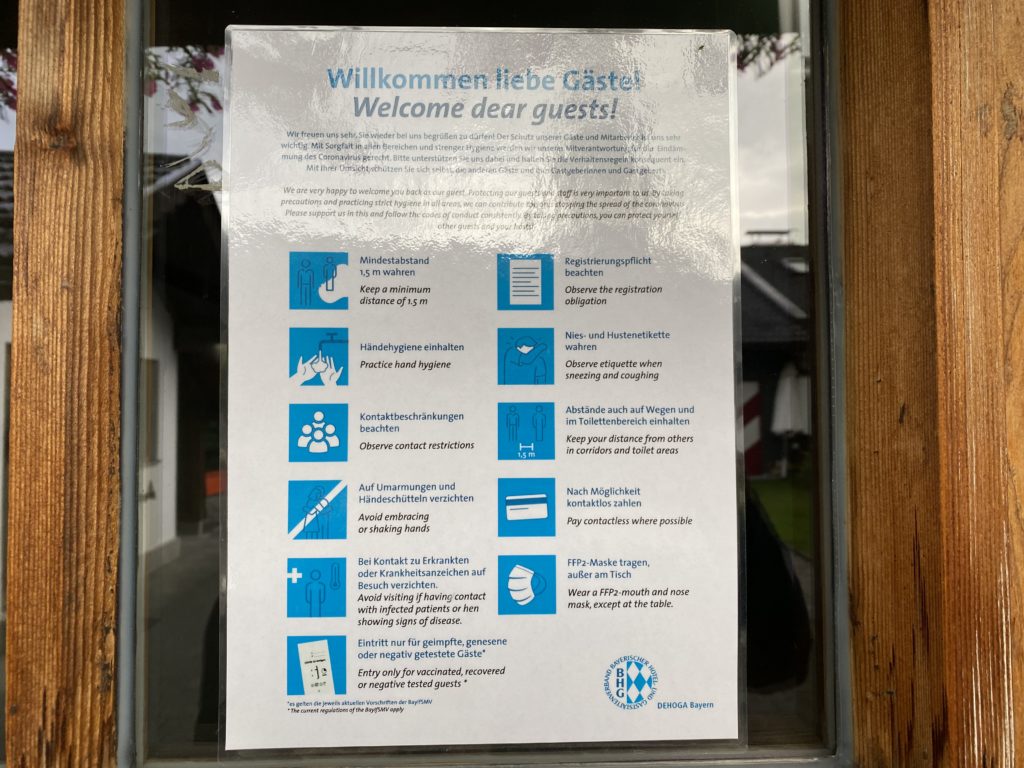

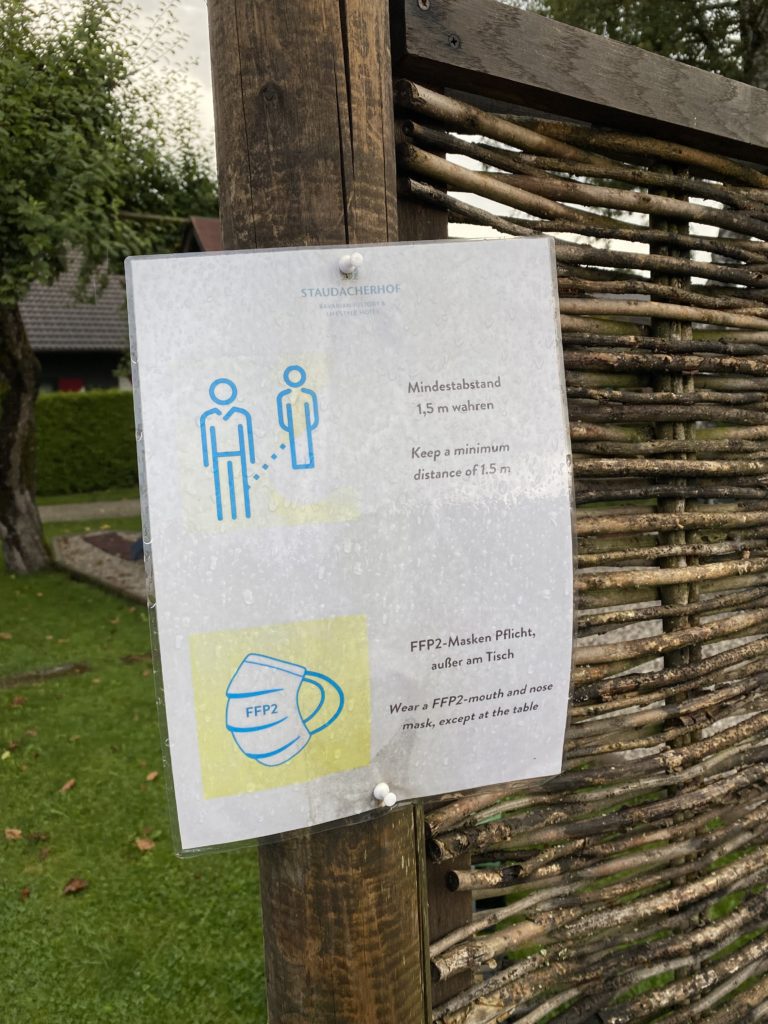
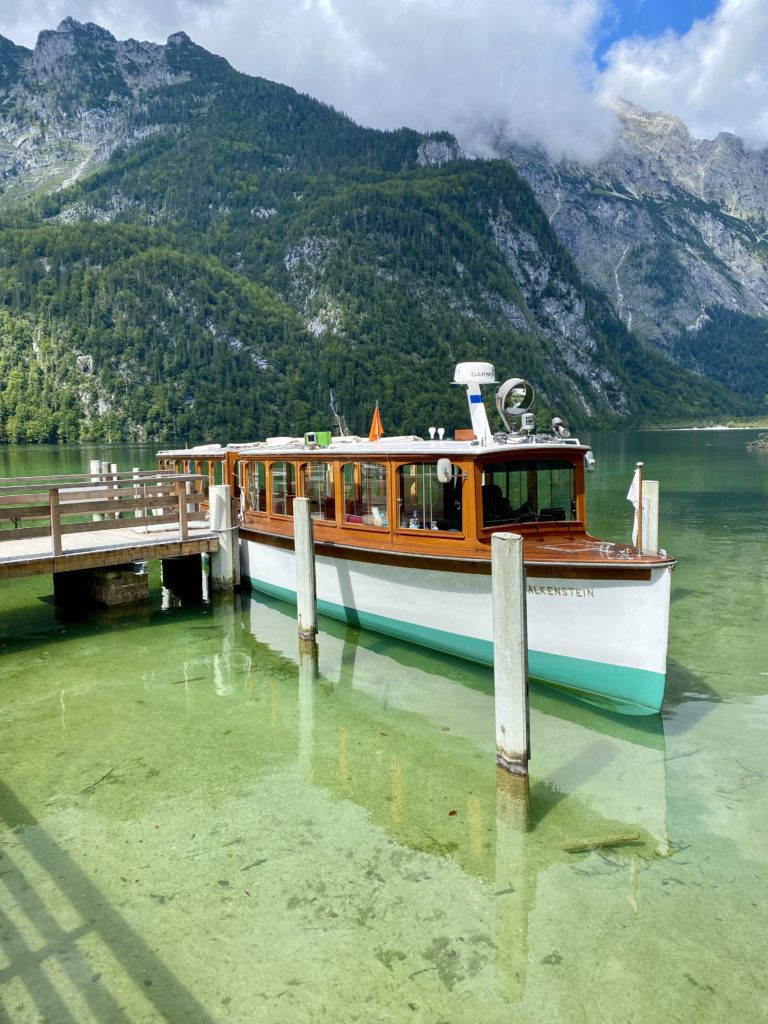

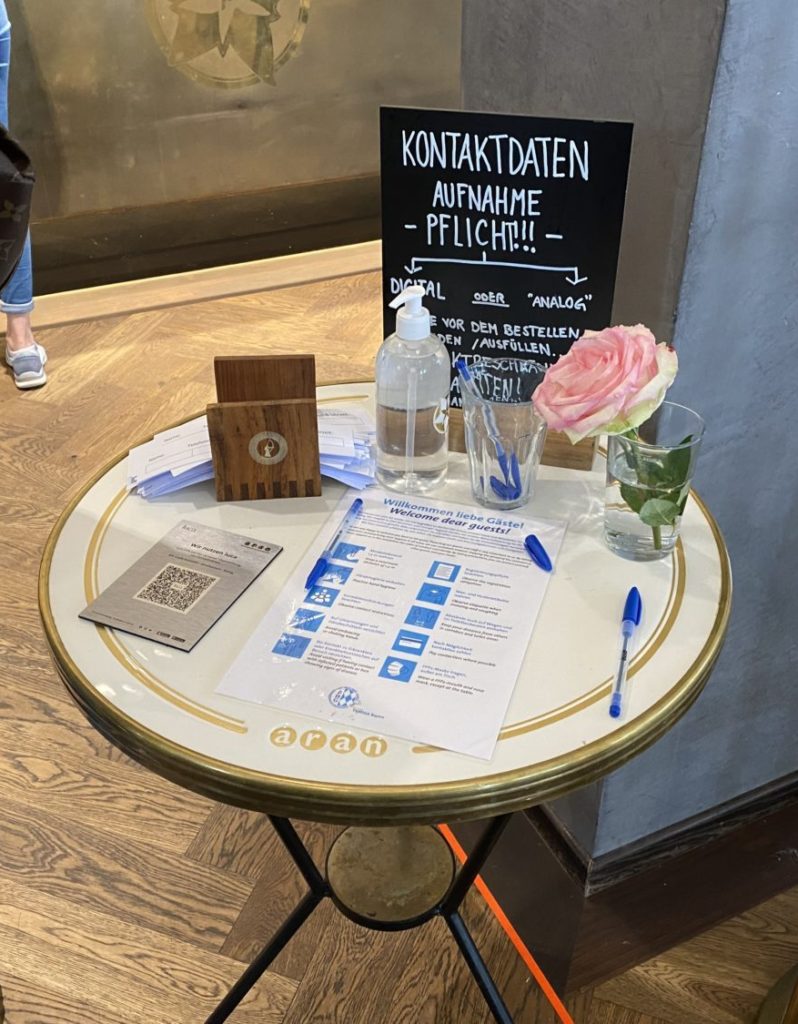
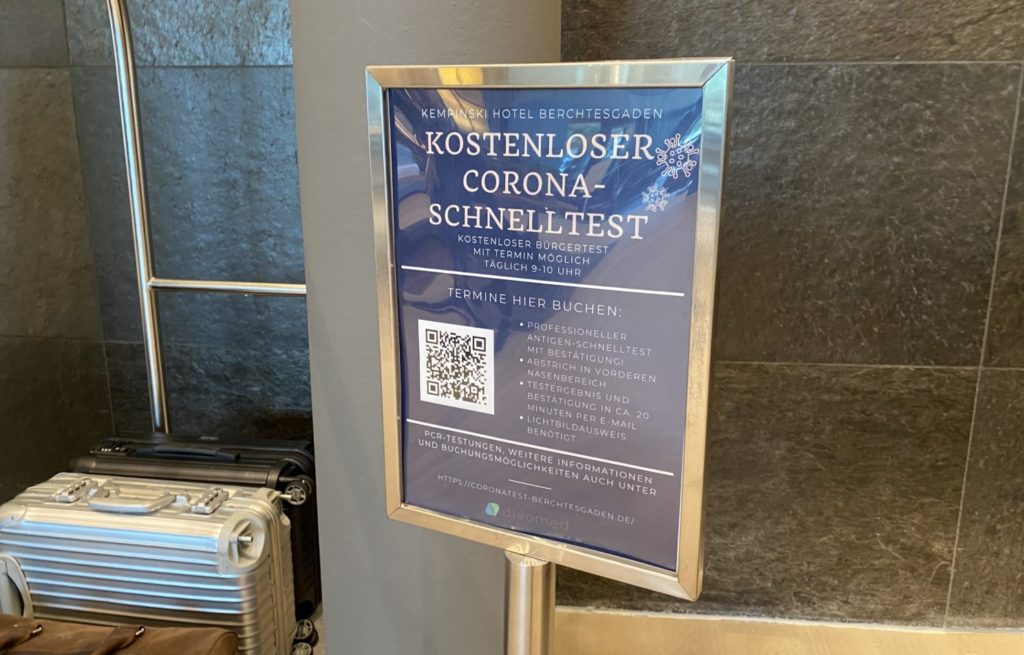
Please check your information again. You can no longer enter unless you are vaccinated ( or special exemption)
IMPORTANT MESSAGE:
From Sunday, August 15th, 0:00 Uhr CET the USA are classified as a so-called COVID high-risk area. This classification as a risk area is the result of a joint analysis and decision-making process by the Federal Ministry of Health, the Federal Foreign Office and the Federal Ministry of the Interior, Building and Community for areas outside the Federal Republic of Germany for which a particularly increased risk of infection with the coronavirus SARS-CoV-2 has been identified.
Travelers who have spent time in the U.S. within 10 days prior to entering the Federal Republic of Germany will have to be a) fully vaccinated or b) need to demonstrate an important reason for entering Germany. More information on this new regulation can be found here. https://www.germany.info/us-en/covid-19/2321562
Thank you! The U.S. Embassy website for Germany still states that you can enter with either your vaccine card, proof of recovery, or a negative COVID-19 test. When that is updated we will update the info. We do, however, recommend being vaccinated for many reasons including the fact that you need a vaccine card or current COVID-19 test to check into any hotel. That makes it difficult if you aren’t. https://de.usembassy.gov/covid-19-information/